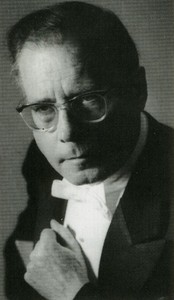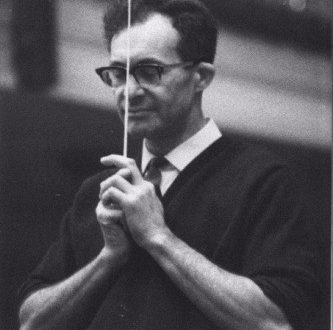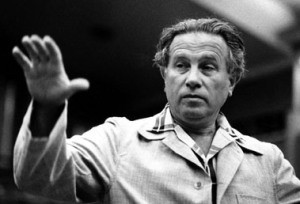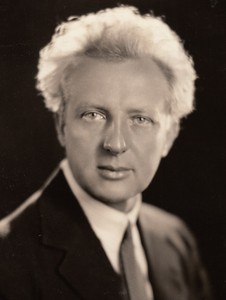
Karl Böhm |
Karl Boehm

For about half a century, the multifaceted and fruitful artistic activity of Karl Böhm has lasted, bringing the artist fame as one of the best conductors in Europe. Vast erudition, broad creative horizons, versatile skill Boehm over the years win him more and more admirers wherever the artist has to perform, where they sell records recorded by the best orchestras in the world under his direction.
“Conductor Karl Böhm, to whom Richard Strauss handed over his artistic heritage after the end of the war, is a real personality at the opera and concert podium. His lively, elastic musicality, complemented by an active intellect and great pedagogical abilities, is capable of the highest interpretive achievements. A fresh wind that carries away any routine permeates his music-making. Boehm’s gestures, modeled on Strauss and Mook, are simple and economical. Acoustic flair and experience, developed over decades, allow him to prepare such a performance at rehearsals that fully meets his concept of the content and sound of the works,” writes the German musicologist H. Ludike.
The beginning of Boehm’s career as a conductor was somewhat unusual. While still a law student at the University of Vienna, he showed more interest in music than in law, although he subsequently defended his doctoral dissertation. Bohm enthusiastically sat for hours at the rehearsals of The Cavalier of the Roses, which left a vivid mark on his memory, took lessons from Brahms’ friend E. Mandishevsky and from K. Muk, who directed him along the conductor’s path. After that, Böhm had to spend several years in the army. And only in 1917, after demobilization, he managed to get a place as an assistant conductor, and then a second conductor in the city theater of Graz, his hometown. Here in 1921 Bruno Walter noticed him and took him as his assistant to Munich, where the young conductor spent the next six years. Collaboration with a wonderful master replaced him with a conservatory, and the experience gained allowed him to become a conductor and musical director of the opera house in Darmstadt. Since 1931, Böhm has long headed one of the best theaters in Germany – the Hamburg Opera, and in 1934 took the place of F. Bush in Dresden.
Already at that time, Boehm gained a reputation as an expert and excellent interpreter of the operas of Mozart and Wagner, the symphonies of Bruckner and, above all, the work of R. Strauss, whose friend and passionate propagandist he then became. Strauss’s operas The Silent Woman and Daphne were performed for the first time under his direction, and the latter was dedicated by the author to K. Böhm. The best features of the artist’s talent – an impeccable sense of form, the ability to subtly and accurately balance dynamic gradations, the scale of concepts and the inspiration of performance – were especially clearly manifested precisely in the interpretation of Strauss’s music.
Böhm retained creative contacts with the Dresden collective in the post-war years. But the center of his activity since 1942 was Vienna. He twice in 1943-1945 and 1954-1956 headed the Vienna State Opera, led the festival dedicated to the opening of its restored building. The rest of the time, Böhm regularly conducted concerts and performances here. Along with this, it could be seen in almost all the major centers of the world; he performed in Berlin, Salzburg, Prague, Naples, New York, Buenos Aires (where he directed the Colon Theater for several years) and other cities.
Although it was the interpretation of the works of Strauss, as well as the Viennese classics and Wagner, that first of all brought Boehm’s popularity, the artist’s creative biography includes many bright successes outside this sphere. In particular, many operas by contemporary authors, such as R. Wagner-Regeni and G. Zoetermeister, are indebted to him for the first production. Böhm is one of the best performers of A. Berg’s opera Wozzeck.
L. Grigoriev, J. Platek, 1969





